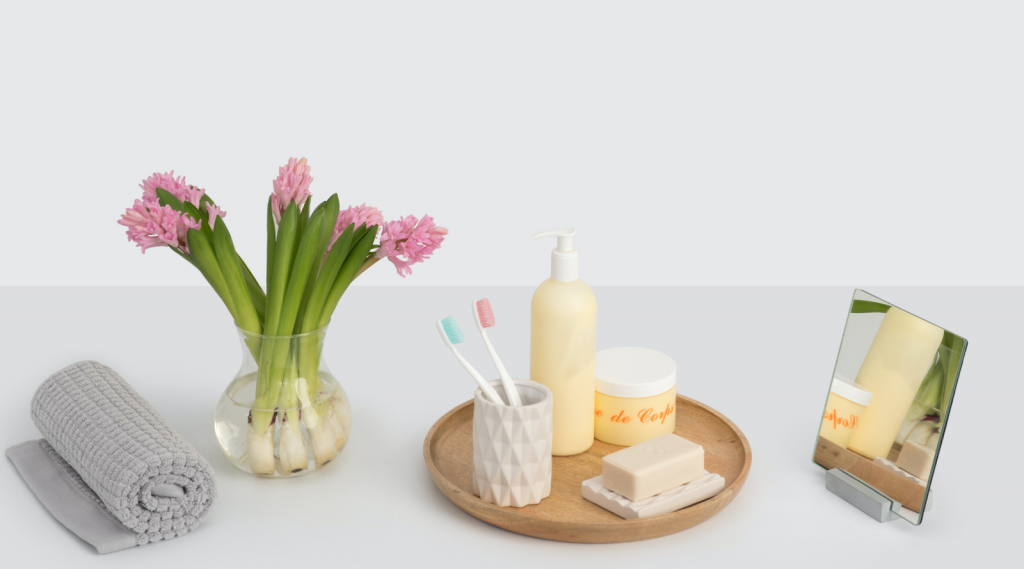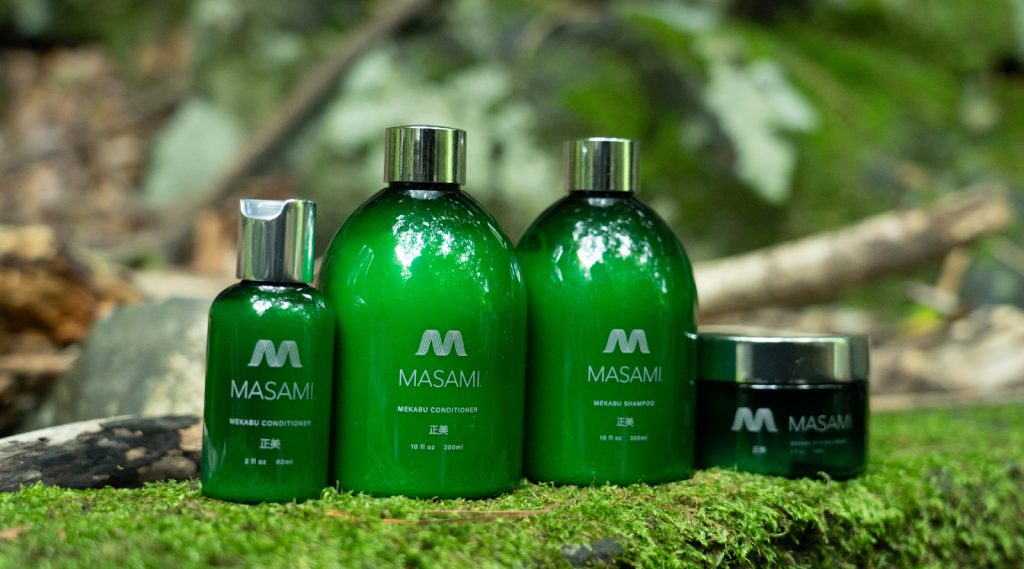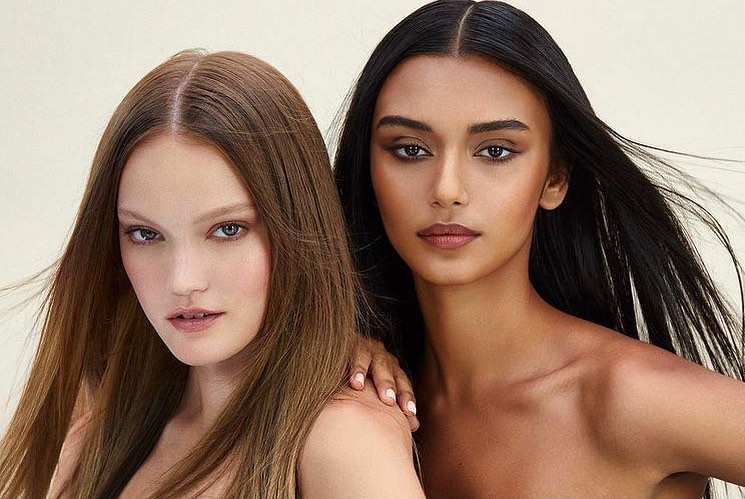Written by: Lynn Power
The beauty industry is dirty. There, I said it! The beauty industry is not only responsible for a tremendous amount of packaging waste (a staggering 120 billion units of packaging waste a year!), but it’s also largely unregulated (at least in the U.S.). For perspective, the EU forbids 1,328 chemicals found in beauty and cosmetics products. These chemicals are known or suspected to cause cancer, reproductive harm, genetic mutation, or birth defects. The U.S. FDA has only banned or restricted eleven chemicals from the beauty industry to date, although California has been our most progressive state on this front, passing the Toxic-Free Cosmetics Act in 2020 which bans 24 known toxic ingredients (still far behind the EU).

China is also updating its regulations and has only recently allowed cosmetic brands to not have to do mandatory testing on animals. And other countries are also still far behind. Unfortunately, this means that there are a LOT of brands and products in the market in the U.S. that are still using ingredients that are known to be bad for you. In fact, 90% of haircare products in the U.S. still contain harmful ingredients. And according to EWG, “Since 2009, 595 cosmetics manufacturers have reported using 88 chemicals, in more than 73,000 products, that have been linked to cancer, birth defects or reproductive harm.”
So, if you’re like many of us who have become more tuned in to what we are putting in and on our bodies throughout Covid (which is a positive outcome of a bad situation), you might be wondering how to clean up your beauty routine. It feels like a daunting task to educate yourself on the multitude of unpronounceable ingredients that are in all of our products. So where to start?
Beauty Detox Step By Step
Let’s start with the known three offenders: sulfates, parabens, and phthalates. These three ingredients can cause a whole host of health issues, from allergic reactions and irritation to more serious issues like endocrine-disrupting, which can wreak havoc on your hormones and body. They can even increase your risk of cancer. Sulfates can clog pores, cause acne and irritate your eyes, skin, mouth, and lungs. Phthalates can cause damage to your liver, kidneys, lungs, and reproductive system (like low sperm count and hormone issues). And parabens can affect birth outcomes and increase the risk of cancer. It’s all so unnecessary if you know how to avoid them. Fortunately, there are loads of clean beauty options now available without these three ingredients — but a key offender can be the fragrance.
U.S. regulations don’t require that we disclose what’s in our fragrances, so it can be a place where phthalates hide. Many brands like MASAMI clarify our fragrance label to say we are “naturally derived and phthalate-free”. Look for brands that are transparent about what is going into their products — and brands that are sulfate, phthalate, and paraben-free. Chances are if a brand is not disclosing what’s in or out of their formulations, it’s because there are ingredients that they don’t want to call attention to. And chances are if a brand has one or more of these three bad ingredients, they may have more. When in doubt, you can always reach out to the brand to ask them directly, most brands have a live chat or customer service email available. Better to know what you’re dealing with — you might be surprised to find out what’s really in the products that you’re using every day.

So which beauty categories are the worst offenders? There’s been a big focus on clean skincare over the past few years, as most people intuitively understand that your skin absorbs the products you put on it (plus, your skin is the largest organ of your body so we tend to use a lot of skincare products). We love some of our clean skincare go-to’s like Romer Skincare, Ida Bodycare, and Faces by Liliana.
But, color cosmetics, hair care, and deodorant are all just as important to be non-toxic as well. Color cosmetics also can absorb into your skin (the average woman eats 4-9 lbs of lipstick in her lifetime!) and many color cosmetic products can contain formaldehyde or mercury. If you are looking for clean solutions, try LAMIK beauty, The Sexiest Beauty, or Puzzle Makeup, not only clean but female-founded as well. Moving on to haircare — your scalp is one of the most absorbent parts of your body so if you are still using haircare with detergents you’re literally rubbing it into your scalp several times a week.
And by the way, that squeaky clean feeling we’ve been trained to want is actually not good for your hair — it’s stripping it, high-performing hair care products like MASAMI will nourish and hydrate your hair naturally, so you won’t even need to shampoo it as much. Deodorants have also come a long way! We love Madame Lemy, a powder-based clean deodorant that you can feel good about using, or Cris’s Blends, an all-natural deodorant that works. The point is, there are loads of clean alternatives that perform really well, so there’s really no need to be a slave to your previous routine. It’s time to free yourself from these harmful ingredients and help educate yourself and your family about a better way.
Another part of your detoxing journey is understanding expiration dates. Some people assume that beauty products never really expire. But depending on the formulations, they can degrade over time and lose effectiveness as well as change their chemical composition including changing color or losing smell. If a cosmetic product has a shelf life of fewer than 30 months, most countries require that an expiration date be included. So take some time to go through your products every year and ditch the ones who have outlived their expiration dates. If you’re not sure, you can follow these general guidelines from Real Simple. Eye makeup tends to have the shortest shelf life, while powders can last the longest. But nothing should be older than 2 years.
The Importance of Embracing Eco-Friendly Lifestyle
As you’re cleaning up your beauty routine, it’s also an opportunity to declutter, simplify and embrace a more eco-friendly lifestyle. The industry has convinced us that we need specialized products for different parts of our face and body, but there are some excellent multi-tasking products that will help you simplify your routine too. Look for products that do more (moisturize and conceal for example) and use this opportunity as a way to pare your routine down to products that can fit in one makeup bag. Simplicity can really help you focus on the key products that really work for you and reduce the complexity of your routine.
Also, look for products that embrace sustainable packaging with refills or other solutions. We just launched a large size sustainable refillable shampoo and conditioner bottles for MASAMI that help keep plastic out of the landfill. And there are some innovative designs like Bite Toothpaste Bits that allow you to avoid packaging and waste altogether. Avoid single-use products (like sample sachets) that are hard to recycle. And check the regulations in your local municipality around what types of plastic can be recycled.
Where I am, they won’t take black plastic, so there are many beauty products I have (and won’t buy again) that have a black lid that will end up in landfills. Also, some recycling facilities can’t handle products under a certain size, so if that’s the case, while tempting, avoid getting the small sample sizes that are often in subscription boxes. Your best bet is to understand what can be and can’t be recycled. You can also bring anything you’re not sure about to Target, they have a recycling station in each store and will do their best to make sure that each piece ends up in the right place.
Wrapping It Up
We hope these tips help you not just detox your beauty, but embrace a healthier, simpler and more sustainable beauty routine. We know you’ll love discovering the multitude of clean beauty options that are now available and you’ll most likely be supporting a small business while you’re at it. A win-win!
About Lynn
Lynn Power spent much of her 30 year career running and transforming agency brands. Lynn has expertise in transforming organizations from top to bottom – including capabilities, organizational structure, talent and culture. She recently left the big agency world to create MASAMI, a premium clean haircare brand which launched in February 2020 and Isle de Nature, luxury bee-powered home fragrance, which launched in September 2020.
Prior to her entrepreneurial move, Lynn was CEO of J. Walter Thompson NY, responsible for the flagship office of WPP’s $1.5B iconic agency (the oldest advertising agency in the world).
Throughout her career, Lynn has had the great fortune of working on some of the world’s most well-known brands including: LISTERINE, American Express, Clinique, Hershey’s, Pizza Hut and Wild Turkey. Lynn loves challenging the status quo and helping women find their voices.
- Learn to Enjoy Self-care Routine - September 21, 2023
- Jonathan Aufray’s Story - July 29, 2023
- From Public Housing To Ivy League: The Inspiring Journey of Crystaltharrell.com and its Founder - June 7, 2023






